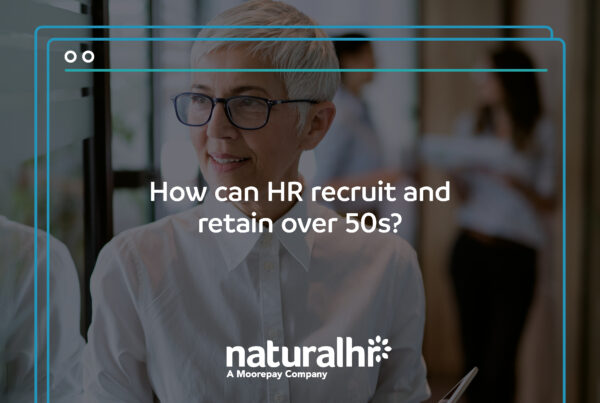
A study conducted by the job website CV Library found that three out of four UK workers are considering handing in their notice in 2022. What’s more, a study coming out of the USA found that some 4.3 million Americans quit or changed jobs in January of this year alone.
In a job market that is increasingly giving candidates the upper hand, companies are being forced to raise salaries and offer a variety of new perks and benefits to attract and keep employees for the long haul.
For employees, the pandemic and a surge in remote working have transformed the job market into a true candidate’s playground. With individuals able to apply for roles across the country (and in some cases, across the globe), the work from anywhere attitude has become a key deciding factor for many seeking new opportunities.
As employers and hiring managers battle with competing organisations for the best talent and, as a result, they must develop new strategies to attract and keep that talent for the long term. Crucially, more and more employees are looking for positions that offer flexibility on where, how and when they work.
As a result, attracting and retaining talent has become more challenging. Talent management teams must now re-evaluate entire strategies in order to meet the changing needs and requirements of employees.
We spoke to 7 HR experts, business leaders and owners to get their approach to winning the employee retention battle.
Flexible first
The ‘great resignation’ has set fear into the hearts of many HR and talent leaders, but the last impact of the pandemic and an unprecedented surge in remote and flexible work poses a huge opportunity for employers to widen the scope of talent management, attraction and, ultimately, retention.
In the tech industry alone, a recent study by NearForm found that a remarkable two thirds (67%) of people would consider leaving a company if they couldn’t work remotely.
Flexible working is no longer a ‘nice to have’, for many, it is non-negotiable.
Brett Downes, Founder of Haro Helpers explains more: “The great resignation has occurred as companies are more open to recruiting globally, meaning we have more competition in the remote working space.”
Haro Helpers also offer a plethora of standard benefits as well as some optional perks that employees are able to choose from that most suit their needs. Brett shares why this approach works best for them: “I have found that a holistic approach has helped our turnover during the pandemic. We offer a variety of standard benefits – to cover all bases, as well as an option of benefits that people can pick from. These include:
- A streaming service subscription – not just Netflix, as we found most employees already piggyback on their friends and families.
- Mindfulness app – optional, not to put too much a point on it, but people who practice this seem to be more content in both their professional and personal lives
- Bonuses – we treat everyone fairly, but not equally. If you perform above targets, then you get paid more. Simple as that
- Birthday bonus – not only do you get the day off, but you also get paid for it. It may seem a simple, standard benefit, but you’d be surprised how many companies don’t do it, and how much employees appreciate it. If it falls on a Saturday or Sunday, you can take Friday or Monday off instead!
- Client commission – if an employee’s work gets recognised by outside companies and we get a new client from it, then they are paid a referral fee (monthly) for the duration of the client using our services. Often 12 months or more on average.”
The team at NearForm are also fully remote and People Director, James Madeley, shares how important this flexibility is for their employees, and ultimately their retention rates. “Being remote first and the flexibility that can provide is a major draw for talent, providing people with the freedom to work as they need to “integrate” work and life in the way that works for them. e.g., going for a walk whilst still light, school pick up, eating dinner at a good time with your partner, doing hobbies etc.
However, being fully remote won’t be for everyone so it is important that the ability for employees to meet in person from time to time is still available and offered to keep retention rates high and to foster a feeling of being part of a physical team. James elaborates: “Facilitating face to face meetings when appropriate is essential for us. Bringing country communities together, client teams together, company, hobby groups together is an important way to make sure people feel they are part of a supportive community where they can not only share knowledge but also have fun with colleagues!”
Recognise star employees
In the workplace, appreciation goes a long way and it is a key contributor to motivation. So much so, 72% of employees would work harder if they felt they were appreciated by their employer.
Brad Cummins is the CEO of Insurance Geek. He examples more about their employee recognition system, as they take a different approach to the typical employee of the month scheme that is more often than not, voted for by business leaders: “Often heads of the business are out of the loop, so our employee recognition system is different. Everyone anonymously submits their vote each month for their nominated employee. The winner gets a spot prize (related to their interests) and a financial reward, which is in everyone’s interests. It works because people on the ground floor (so to speak) are much more aware of how hard someone has worked and are more attuned to their efforts.”
Make sure salary and other benefits are always competitive
One of the most important factors to bear in mind when developing an employee retention strategy is making sure salary and benefits are competitive. Money matters. In fact, 45% of employees who quit their jobs cite salary as the top reason for their resignation.
Zach Blenkinsopp is the Owner of Digital Roofing Innovations and he shares his take on the importance of ensuring employees are fairly and competitively remunerated for their contributions to business success in order to drive retention: “For most people – no matter what companies say – they only work at a job for a pay check, and we help facilitate and improve on that by offering employees to be part of our affiliate scheme. Meaning the harder/smarter they work the more their cheque is each month. The more the company earns, the more they earn.
“We have found from other examples that when companies earn more and more money, and the employees keep earning the same it can cause resentment in the team. And there are few quicker ways to lose employees than imparting that emotion on them!”
Similarly, the team at Bobble Digital ensure all employees are paid above the market rate and provide training programmes to help employees achieve the role and wage they desire. Manpreet Singh, CEO explains: “At Bobble Digital we offer flexible working from home or the office, this gives our employees control over their time and travel costs to and from work. We are proud that we pay above the market rate for roles to ensure that employees are rewarded. Every six months, we also conduct wage reviews in line with reviewing the costs of living and costs associated with work duties e.g., travel etc.
“We also offer weekly training and an in-depth development plan at Bobble to help all employees achieve the role and wage they want. This ensures and gives clear development and career progress within our team which results in a high retention rate as a) we are paying above the market rate and reviewing wages often b) we offer flexible working by location to help reduce costs and c) there is no ceiling to wage earnings or role development so there is a clear path to progress in your career.”
Clearly, the perks and retention strategies enlisted by companies will vary depending on the type of work involved, industry pressures and employee demands. The impact of COVID alone has completely transformed the corporate world as we know it and employees now hold the majority of the cards when it comes to their jobs and careers.
Retaining your people in today’s world of work might not be possible with your pre-pandemic measures. You need to constantly stay on your toes to keep ahead of the game.
Adapt employee retention strategies to meet changing needs
Dax McLean of Heatable shares how his business has adapted employee retention strategies in light of changing market forces: “As a business, we have multiple departments and historically we have always struggled to retain our customer service staff, primarily those within our sales, technical and complaints department.
“Traditionally call-based jobs have had a reputation for high levels of stress, excessive demands and unrealistic targets and in the early days of the business, we also experienced many of these struggles, resulting in a high turnover of staff within our call-based departments.
“However, over time we have found that employing a number of tactics has really helped improve the work environment, morale and most of our staff are still here since those changes were integrated.
“For example, we have started to offer a pay review for all staff based on performance, meaning that they always feel rewarded for their hard work and dedication to the business. This includes a bi-annual salary review and commission-based bonuses for any sales or savings they make for the business.
“We also do a monthly meeting and newsletter, where key achievements and milestones are acknowledged and celebrated. We also award ’employee of the month’ during the monthly event and circulate a monthly newsletter, which is created as a team effort and made collaboratively throughout the company. We believe these activities have made a huge impact on morale by making the entire team feel appreciated for the work they do.”
Factor all HR initiatives into retention strategies
It is important to remember that no employee retention strategy can operate in isolation. The factors that contribute to an employee’s decision to stay or leave are often diverse. Other HR initiatives such as health and wellbeing, working hours, time-off, remuneration and training can all have a direct impact on retention. If employees aren’t being paid fairly, if their wellbeing is suffering in a high-stress environment or even if their holiday wasn’t approved; these can all directly impact the efforts you’re making to boost retention.
Hellene Garcia is Head of Commercials at Neat, and she shares an example of how their wellbeing strategy is making a positive impact on employee retention rates: “Employee wellbeing is extremely important at Neat. We’ve built a culture around empowering employees to work in the way that makes the most sense for them. Our leadership team models the behaviour we expect from our employees – taking time away from meetings to think and recharge, taking time away from work to be with our families and pursue our hobbies, and bringing our best selves to work as a result.
“Our team works incredibly hard and we make use of our own technology to ensure that meetings and collaboration are as engaging, equitable and productive as possible so we can free up time for the next big idea, or just some rest.
“This quarter, we’ve given all employees an extra day off and a bonus to do something fun with their families, as recognition that in order to feel our best at work, we need to spend plenty of time with the people we love doing the things we enjoy. We’ve also recently released Neat Frame, a personal, portrait form factor device that can move with you to work wherever you like. Our employees are using it to work from their backyard, their kitchen or anywhere the mood strikes.”






